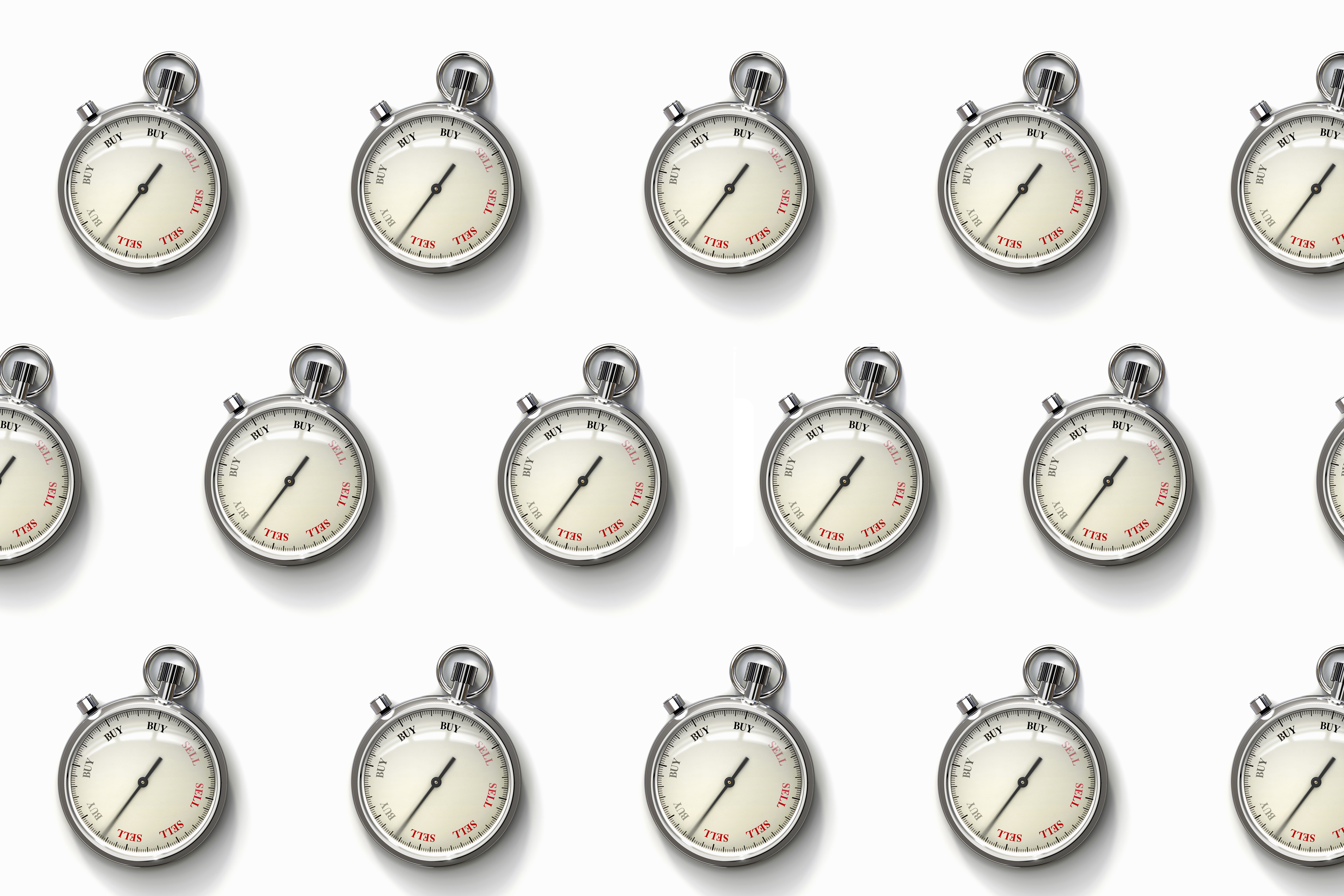The stock buyback binge
Since 2009, buybacks have been responsible for 21 percent of the overall increase in market value for S&P 500 firms

A free daily email with the biggest news stories of the day – and the best features from TheWeek.com
You are now subscribed
Your newsletter sign-up was successful
The smartest insight and analysis, from all perspectives, rounded up from around the web:
A rising stock price used to mean a company was doing something right, said Alain Sherter at CBS News: releasing great products, conducting trailblazing research, even benefiting from visionary leadership. Today, though, the company might just be "buying a boatload of its own shares." Stock buybacks, which help juice a company's short-term stock price by reducing the number of outstanding shares, are nearing historic levels. U.S. companies spent $516.7 billion buying their own shares in the first nine months of this year, the highest amount since the record first three-quarters of 2007. Firms love buybacks because they can effectively boost earnings per share, since there are fewer shares in circulation, even if a company's total earnings fall or stay flat. In fact, since 2009, buybacks have been responsible for 21 percent of the overall increase in market value for S&P 500 firms.
"What's not to like about companies purchasing their own shares from time to time on the open market?" asked Russ Wiles at the Arizona Republic. Investors tend to cheer buybacks, because their portfolios benefit and there are certain tax benefits over regular dividends. And unlike dividends, companies see buybacks as a one-off way to reward shareholders without setting the expectation that they'll continue in the future. The downside? Money that's spent on buybacks is money that's not being spent to grow the business. In fact, "showering cash on shareholders may exact a long-term toll" on a company's health, said Karen Brettell, David Gaffen, and David Rohde at Reuters. Consider Hewlett-Packard. The onetime poster child for innovation began billions of dollars in stock buybacks when Carly Fiorina took the reins in 1999. By the time Fiorina was ousted in 2005, the company had purchased $14 billion of its stock, more than its $12 billion in profits during that time. Her successors continued the mega-buyback trend, even as the core business deteriorated steadily. And HP is hardly alone. Among the 1,900 companies that have repurchased their shares since 2010, money devoted to buybacks and dividends amounted to 113 percent of their capital spending, compared with 38 percent in 1990.
The Week
Escape your echo chamber. Get the facts behind the news, plus analysis from multiple perspectives.

Sign up for The Week's Free Newsletters
From our morning news briefing to a weekly Good News Newsletter, get the best of The Week delivered directly to your inbox.
From our morning news briefing to a weekly Good News Newsletter, get the best of The Week delivered directly to your inbox.
Buyback defenders would tell you to follow where the money ultimately goes, said Justin Fox at Bloomberg View. Part of the rationale for buybacks is that investors take their earnings and reinvest them in new, promising ventures. But a closer look at the data suggests that isn't happening. Total shareholder payouts were more than $1.2 trillion in 2014, but investors reinvested less than $200 billion in the form of IPOs and venture capital. Want to know why executives love buybacks so much? asked Barry Ritholtz, also at Bloomberg View. "Because so much of the proceeds of buybacks end up in their own pockets." Even as companies buy back stock in record amounts, they're also issuing new shares that go directly into executive pay packages. All the while, they're letting their business suffer for lack of investment. Investors really should ask themselves: "Why is management at so many companies bereft of better ideas and more productive uses for corporate cash?"
A free daily email with the biggest news stories of the day – and the best features from TheWeek.com
-
 Political cartoons for February 16
Political cartoons for February 16Cartoons Monday’s political cartoons include President's Day, a valentine from the Epstein files, and more
-
 Regent Hong Kong: a tranquil haven with a prime waterfront spot
Regent Hong Kong: a tranquil haven with a prime waterfront spotThe Week Recommends The trendy hotel recently underwent an extensive two-year revamp
-
 The problem with diagnosing profound autism
The problem with diagnosing profound autismThe Explainer Experts are reconsidering the idea of autism as a spectrum, which could impact diagnoses and policy making for the condition
-
 The pros and cons of noncompete agreements
The pros and cons of noncompete agreementsThe Explainer The FTC wants to ban companies from binding their employees with noncompete agreements. Who would this benefit, and who would it hurt?
-
 What experts are saying about the economy's surprise contraction
What experts are saying about the economy's surprise contractionThe Explainer The sharpest opinions on the debate from around the web
-
 The death of cities was greatly exaggerated
The death of cities was greatly exaggeratedThe Explainer Why the pandemic predictions about urban flight were wrong
-
 The housing crisis is here
The housing crisis is hereThe Explainer As the pandemic takes its toll, renters face eviction even as buyers are bidding higher
-
 How to be an ally to marginalized coworkers
How to be an ally to marginalized coworkersThe Explainer Show up for your colleagues by showing that you see them and their struggles
-
 What the stock market knows
What the stock market knowsThe Explainer Publicly traded companies are going to wallop small businesses
-
 Can the government save small businesses?
Can the government save small businesses?The Explainer Many are fighting for a fair share of the coronavirus rescue package
-
 How the oil crash could turn into a much bigger economic shock
How the oil crash could turn into a much bigger economic shockThe Explainer This could be a huge problem for the entire economy